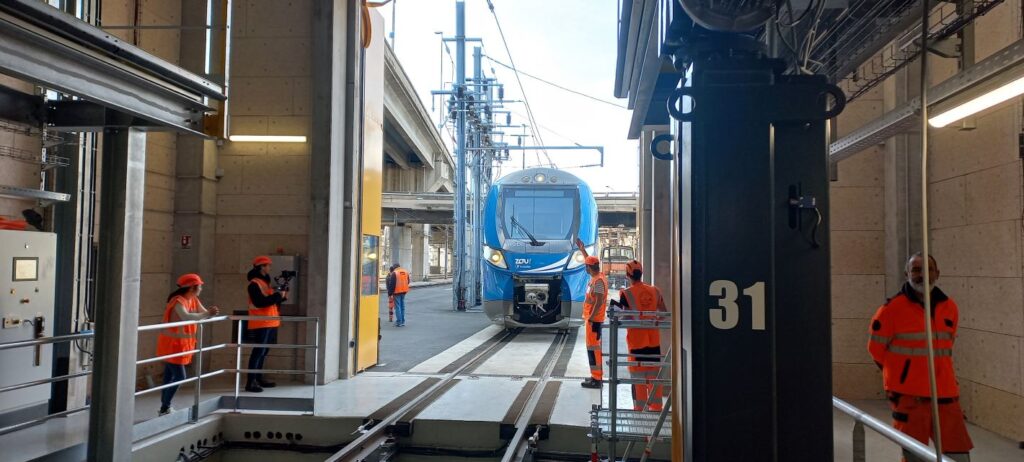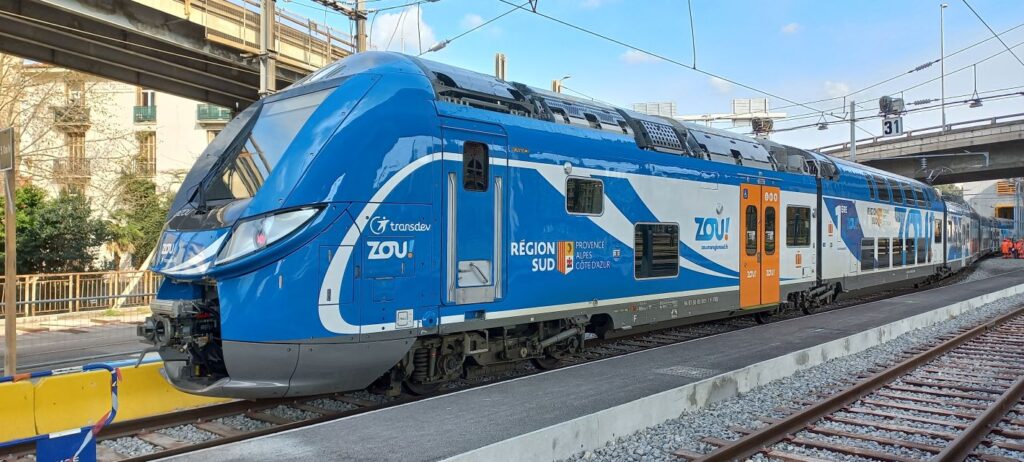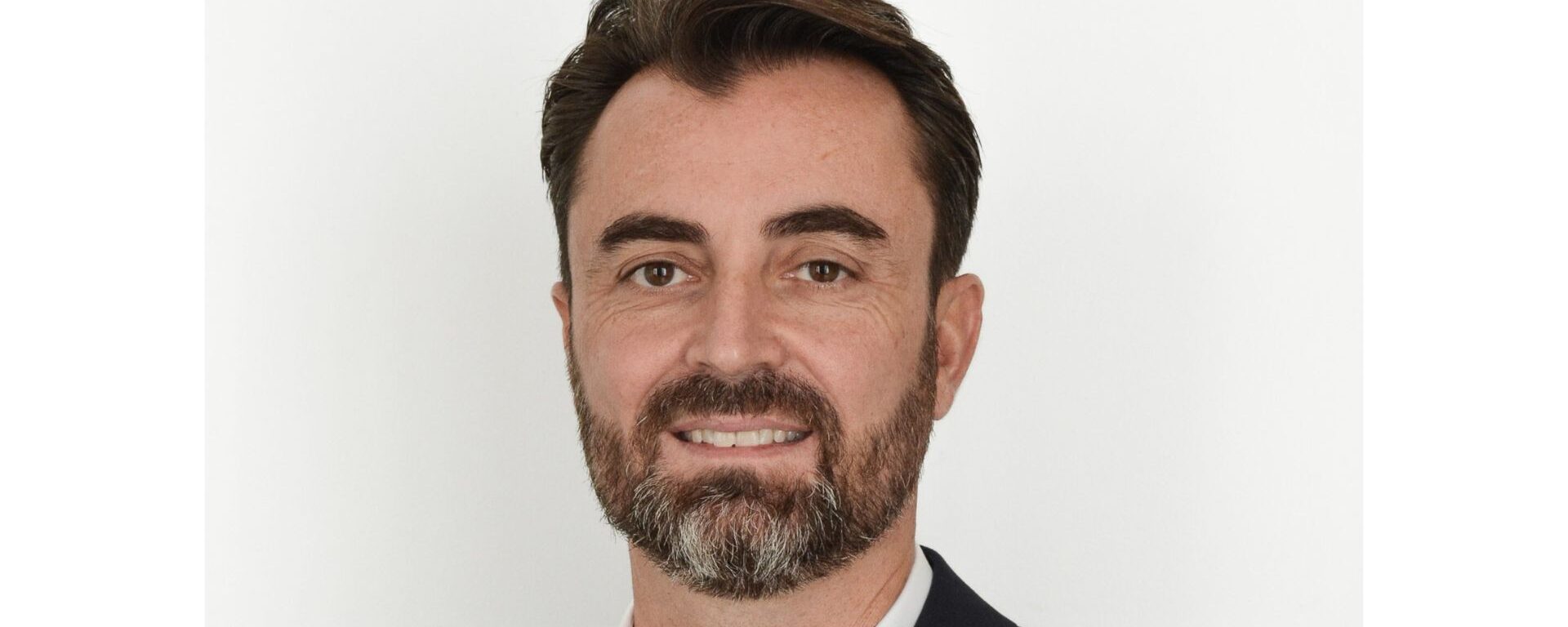Gwendal Gicquel is at the head of the Marseille-Toulon-Nice line, historic because it is the first regional line open to rail competition in France. As Director of Transdev Rail Sud Inter métropoles, he shares his background, the challenges associated with this unprecedented launch and his ambition for a more modern, accessible and efficient service.
Could you briefly introduce yourself?
I’m 48 years old and joined Transdev in 2021 to prepare for the start-up of operations on the Marseille – Toulon – Nice line after signing the contract with the region. My background is international and multi-sectoral: transport infrastructure financing for the World Bank (Madagascar), port operations and logistics (Congo), oil industry (Nigeria). Back in France, I managed a subsidiary in combined transport. Between 2009 and 2021, I alternated between studies and entrepreneurial projects before joining Transdev.
The line between Marseille, Toulon and Nice is the first regional rail line in France to be opened to competition. Can you tell us more about this context?
The opening up of the rail market to competition is the result of a European directive imposing calls for tender on member states. France, one of the last countries to implement the directive, has drawn on the experience of its neighbors, such as Germany, which has 30 years’ experience. Unlike the UK, which has privatized its infrastructure, France is only opening up rail operations to competition. The South Provence-Alpes-Côte d’Azur region was the first to take this step, followed by the Grand Est, Hauts-de-France and Pays de la Loire regions. It has divided its network into four parts: the Marseille-Toulon-Nice line, a part around Nice won by SNCF and put into service in December, and a third part in which Transdev is participating. A fourth part will be launched shortly. This new context implies a learning and adaptation phase. Beyond the technical aspects, the challenge is also to build a transparent and constructive relationship with the French South Region, which is working for the first time with an operator other than SNCF.
Won in November 2021, the line will start operating in summer 2025: what were the challenges and complexities involved in preparing for this launch?
Four years may seem a long time, but they go by very quickly. This project involves a number of challenges: industrial, human and organizational. Even before building the trains, we had to reach an agreement with Alstom and the region on their design. Three key contracts form the framework of the project: with the region, Alstom for the manufacture of the rolling stock and NGE for the maintenance site in Nice, right in the center of town, on a site still operated by the SNCF until mid-2025. The human challenge is a major one: we’ve gone from 2 people at launch to over 80 today, and will be 220 in a few months’ time. Recruitment is rigorous, in particular to select 40 drivers for training from 1,000 applicants, as well as 80 customer relations agents and managers in all departments. The ramp-up is rapid and represents a real challenge.

How will the line contribute to local development?
Transdev is creating local, skilled jobs, with a base in Marseille and Nice. As part of this new contract, Transdev’s offer will break with what already exists. The aim is to develop everyday transport – to work, to university, to high school, to see family and friends – and to support the development of tourism in a highly attractive region. Starting in June, train frequency will double, with a train every hour between 5:30 a.m. and 9:30 p.m., compared with 7 at present. The aim is to offer a more frequent, reliable and comfortable service, encouraging a modal shift. The Region is particularly active in developing its public transport offer, both in terms of volume and quality of service. This project illustrates our determination to improve this performance in a region that has historically been car-oriented.
What changes for passengers in terms of contact, frequency, fares and services?
The fare doesn’t change. Transdev does not sell tickets to users, but supplies trains to the region, which markets the service via a new ticketing system. Two major improvements are worth noting. Firstly, on-board comfort: new trains with Wi-Fi, entertainment portal, real-time information and vending machines for drinks and snacks. Secondly, improved accessibility: the old Corail trains will be replaced by models adapted for people with reduced mobility, with the possibility of taking bicycles on board. Finally, the sales approach is changing. Transdev agents will not be limited to checking tickets: they will also play a role in welcoming, accompanying and assisting passengers to enhance their experience.

A final word? Do you have anything you’d like to add, a personal viewpoint or something you’d like to say to our readers?
This project is an incredible adventure! We’re the first to do it, and that’s something to be proud of. Building a team from scratch, imagining everything, putting it all together – it’s an exciting and stimulating challenge. What’s more, we’re opening up a new market for Transdev, a real growth driver. And above all, all eyes are on us! Our success will influence the future of rail in France and the opening up to competition. It’s an ambitious mission: to prove that it works and show the way for years to come!

